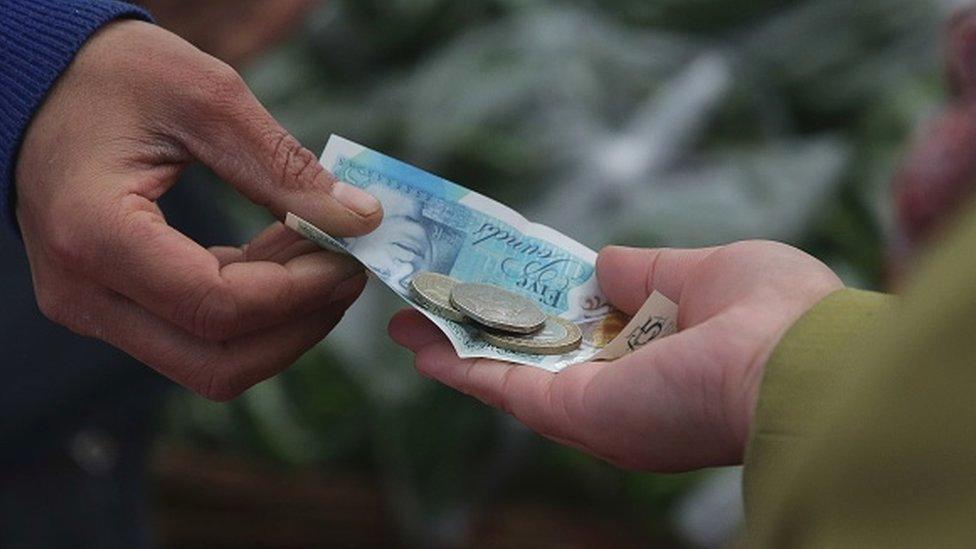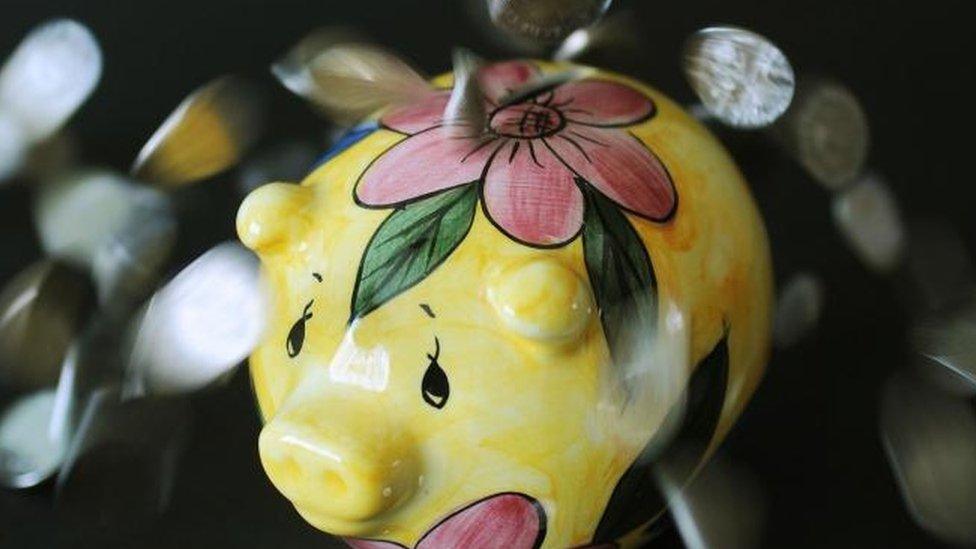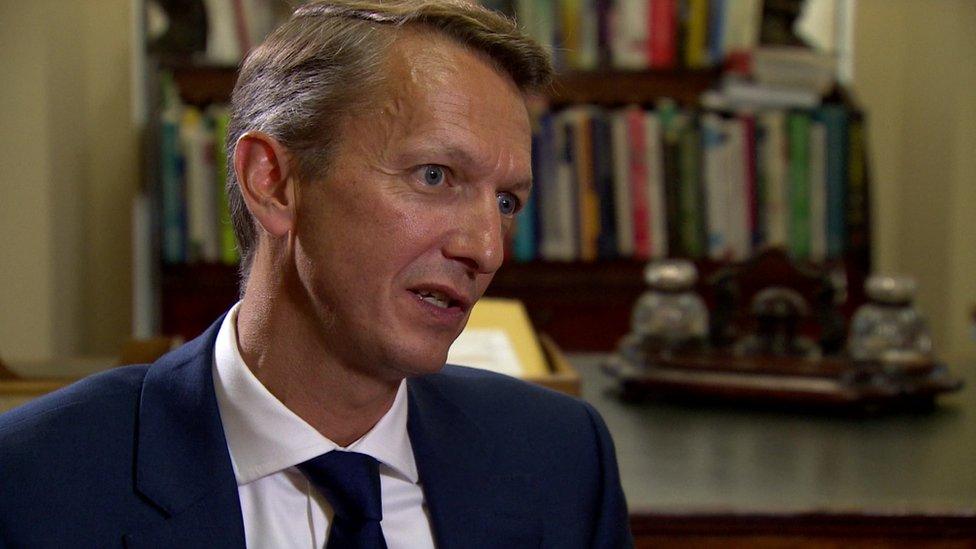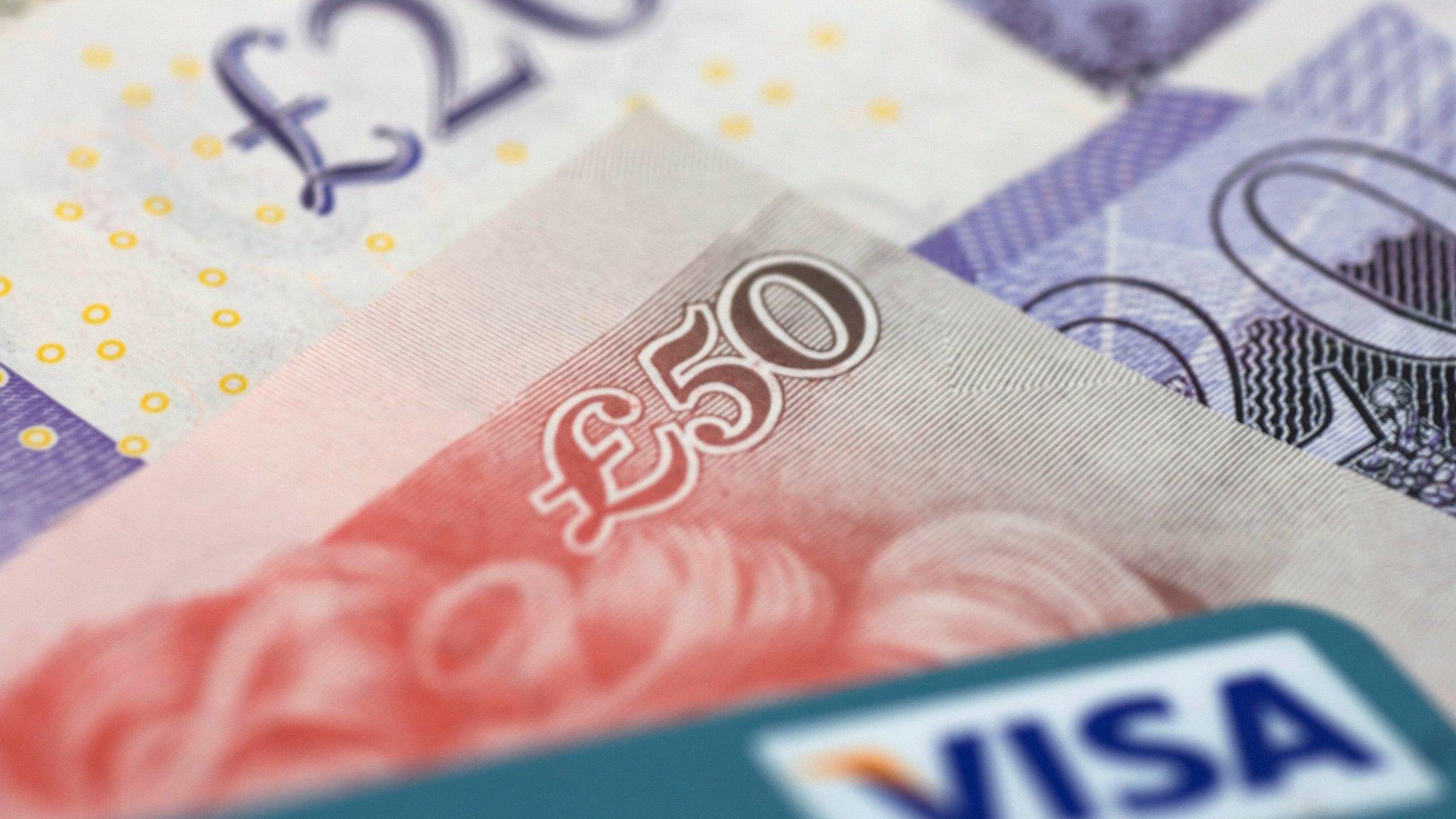Savings ratio at record low as disposable income drops, says ONS
- Published
- comments

The proportion of UK residents' disposable income that goes into savings has fallen to a record low.
The savings ratio - which measures the outgoings and incomings that affect households - has been falling sharply for more than a year.
The Office for National Statistics (ONS) said the ratio stood at 1.7% from January to March, down from 3.3% in the previous quarter.
The UK economy grew by 0.2% in the first quarter of 2017, the ONS said, external.
This was unchanged from an earlier estimate but confirmed the slowdown from the 0.7% rate seen in the final quarter of last year.
Growth in the business services and finance sectors helped to offset slower consumer spending, the ONS said.
Tax effect
Consumer spending and saving were hit by another fall in disposable income.
For the first time since the 1970s, disposable income has fallen for three quarters in a row.
Concerns have also been expressed about the level of consumer borrowing on loans, credit cards, overdrafts and car finance.
But the ONS also said that the timing of tax payments was a major factor in the cut in savings levels since September last year. Gross saving of £5.6bn in the first quarter of the year was a sharp drop from £11bn the previous quarter, and £17.7bn in the three months before that.
Darren Morgan, head of GDP at the ONS, said: "The saving ratio has fallen again this quarter to a new record low, partly as a result of higher tax payments reducing disposable income.
"Some of the fall could be as a result of the timing of those payments, but the underlying trend is for a continued fall in the saving ratio."
'Never-ending battle'
Frances O'Grady, general secretary of the TUC, said: "These figures make for grim reading. People raiding their piggy banks is bad news for working people and the economy.
"But with wages falling as living costs rise, many families are having to run down their savings or rely on credit cards and loans to get through the month. With household debt now at crisis levels, we urgently need to create better paid jobs."
Labour's shadow chancellor John McDonnell said: "This suggests that the crisis in earnings not keeping up with prices means that many working households are struggling to make ends meet."
Vince Cable, from the Liberal Democrats, said: "Rising prices and falling wages since the Brexit vote mean families are increasingly unable to live within their means or save for the future.
"Our economy's reliance on consumer spending, propped up by debt, is not sustainable and combined with an extreme Brexit the consequences could be severe."
Earlier this week, financial information service Moneyfacts said that savers have faced a "never-ending battle" to get a decent return on their cash over the past few years.
Nine out of 10 easy access savings accounts pay interest of less than 1%, and a third of such accounts failed to even pay a rate matching the current base rate of 0.25%.
Savings rates are failing to keep pace with the rising cost of living, with inflation at a rate of 2.9%.
- Published27 June 2017

- Published29 June 2017

- Published27 June 2017
